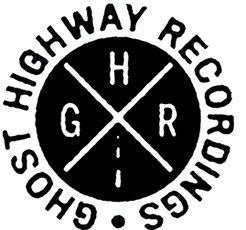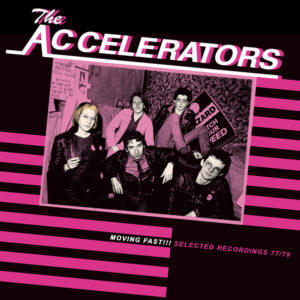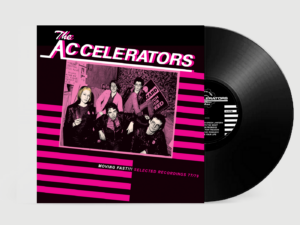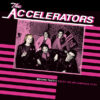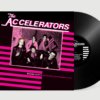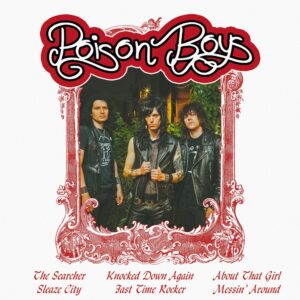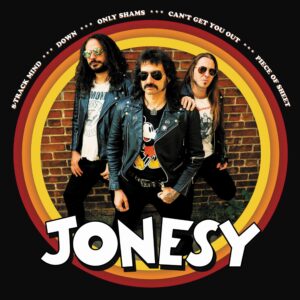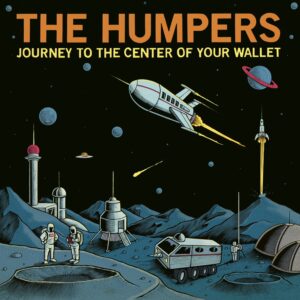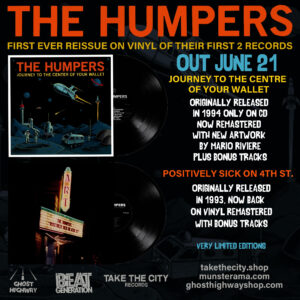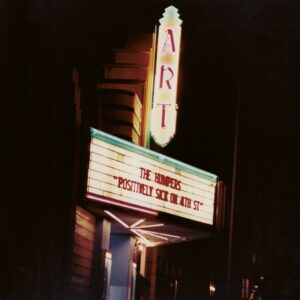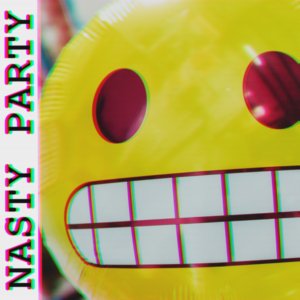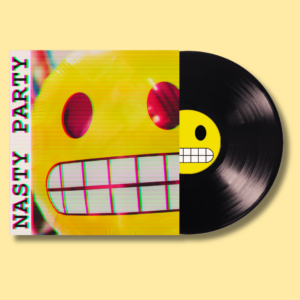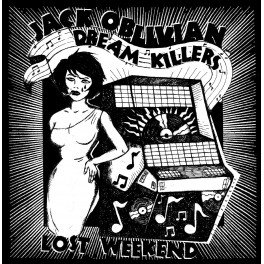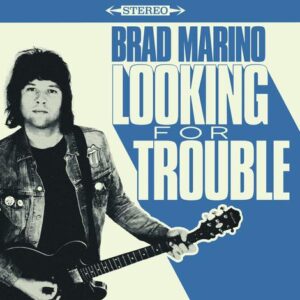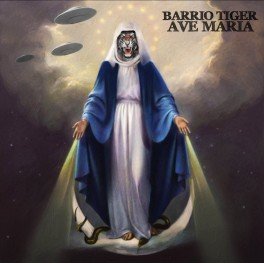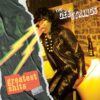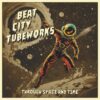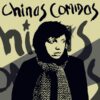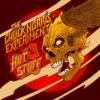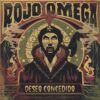We are honoured to present a new album for September. THE ACCELERATORS, one of the first punk bands from Liverpool, UK.
This is a remastered Lp with their studio recordings with unreleased songs, and alternative versions. With new artwork by Mario Riviere and an insert with a bands interview.
THE ACCELERATORS’ story starts in Liverpool 1974 with art student Kathy Freeman, originally from London, playing blues guitar duets with her then boyfriend, Martin Yarker. 1976 found them jamming with housemate bassist Jim Webb. Recruiting singer and harmonica player Chris Martin, they formed rhythm and blues cover band, THEBIGGLES BLUES BAND. Initially with Graham Marsh (a.k.a Miles from Nowhere) then Tony Doyle (a.k.a Tony Monotony) on bass, the gigs started topick up. Brian also became known sometimes as “Brian Damage” Kathy as “Kathy Apathy” and Martin as “Martin Smith”. . They gigged relentlessly (over 400 shows in four years, mainly in northern England) including supports with the likes of SIOUXSIE AND THE BANSHEES, THEBUZZCOCKS, THE RICH KIDS, ORCHESTRAL MANOUEVRES IN THE DARK and XTC. Their DIY spirit led to them running regular events in the Havana night club along with friends THOSE NAUGHTY LUMPS.
In August 1979 they recorded three songs with producer Mike Walker in Liverpool’s Amazon Studios. Then another three the next month (at Open Eye Studios – production by Noddy Knowler.) One of these, “Radio Blues” was included by John Peel on the “Street to Street” Compilation (Open Eye Records) Faithful again to their punk DIY philosophy, they released all six songs as a 12” EP on their own label Spiv Records. The result is a varied album with a quite polished sound compared to their previous releases, where we find influences from THE JAM, THE CLASH and THE UNDERTONES.
In 1980 Martin left and was replaced by Leigh Marles. In 1981 they called it a day, leaving a solid legacy of performances and a handful of really good songs that are compiled for the first time ever on an LP, totally remastered. This is a co release with Beat generation.

